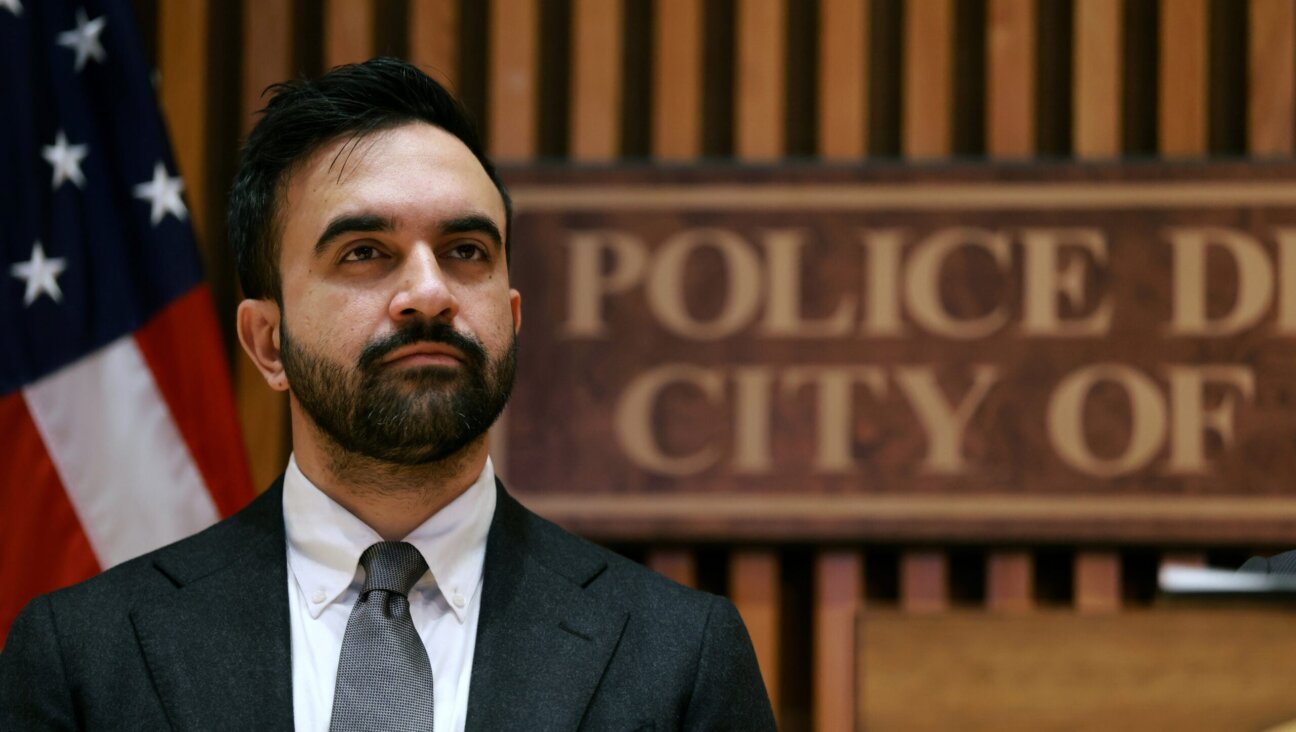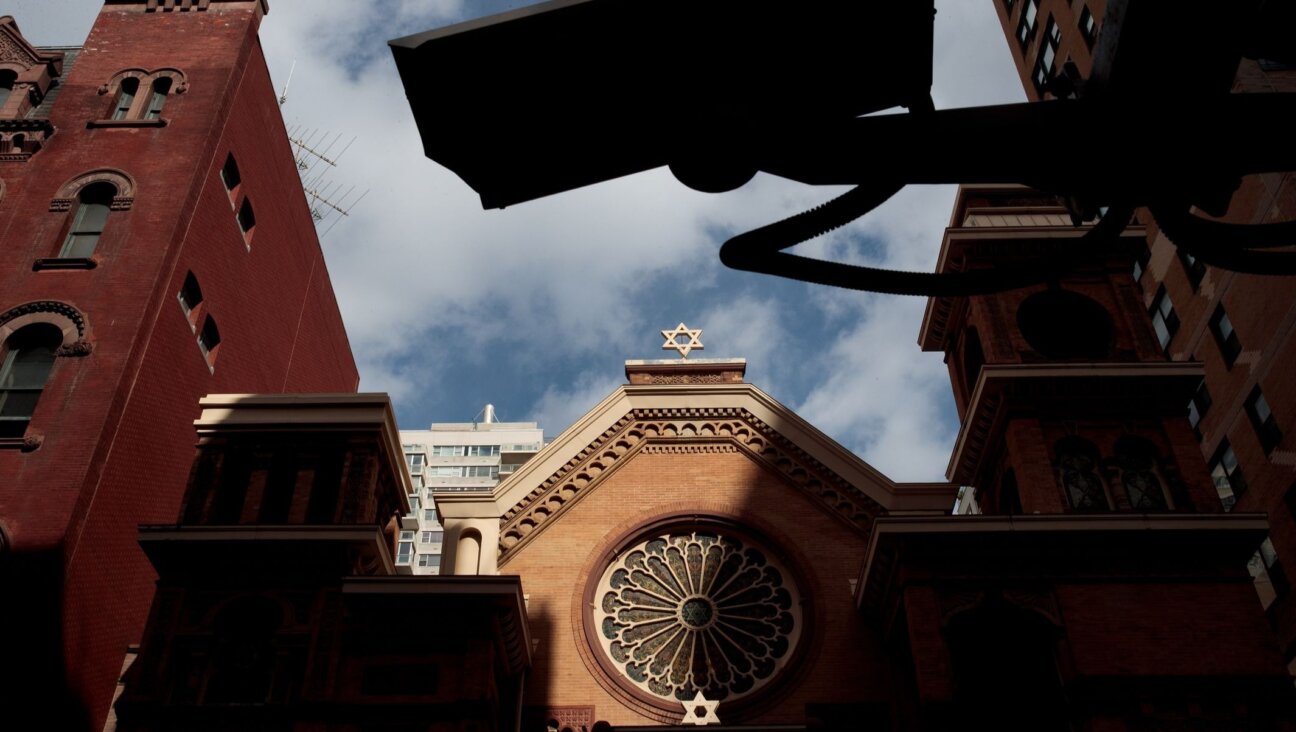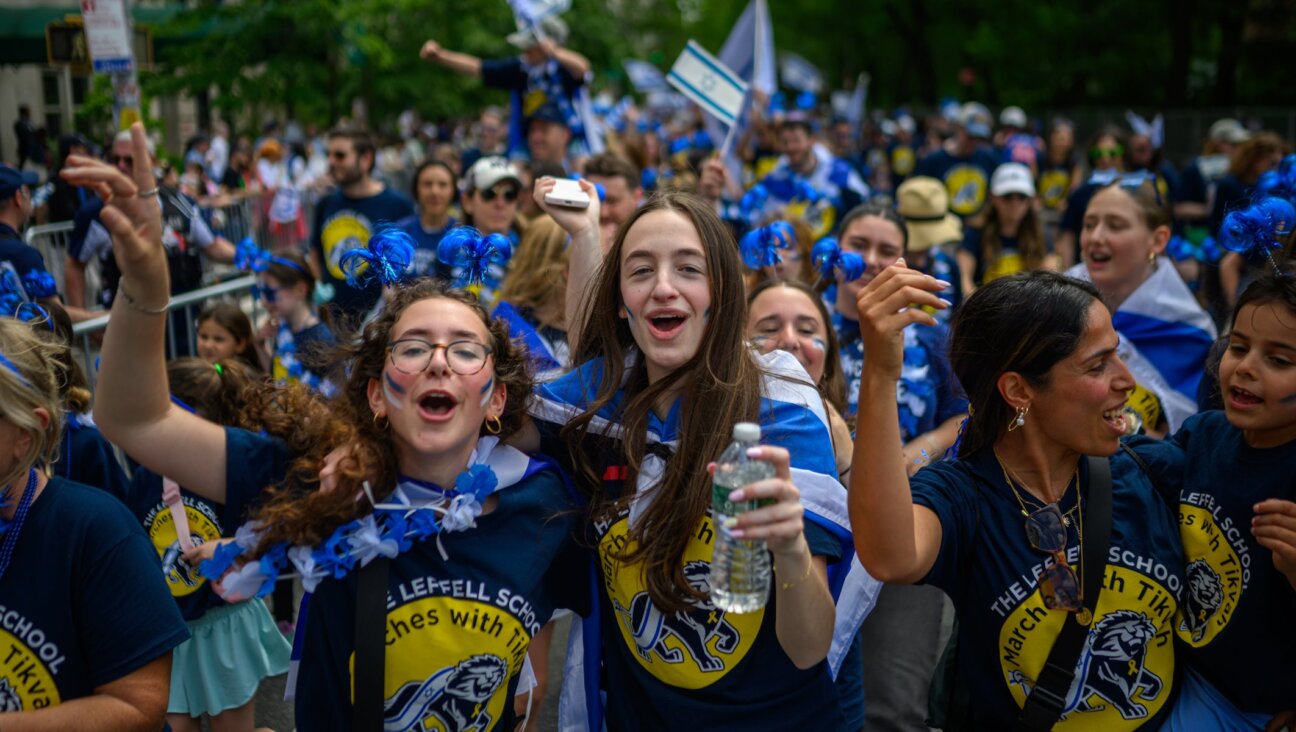My Father’s Funeral

Image by Anya Ulinich
Growing up, there were days when my sister and I felt we were living in a madhouse. When our father was in a good mood, he was funny and kind, intelligent and learned; and the next moment, for no apparent reason, he screamed at us, and remained sullen for hours. We wanted to run away. When we grew up, these memories of childhood haunted us. We did our best to forget them. Until Dad died in December 1983. That changed everything.
My sister Ziona and I brought Dad’s remains with us on board our flight from New York to Israel. When we landed, his coffin was carried by the chevera kaddisha to the hearse, behind which was parked a long procession of cars filled with our relatives.
Uncle Mosheh, Dad’s younger brother, escorted us to the car behind the hearse, piled in with us, and the cortege headed for the hills of Judea and the Har Hamenuchot Cemetery at Givat Shaul, overlooking Jerusalem.
There was no opportunity to change into more formal attire, so I felt uneasy in my beige corduroy jacket and jeans. A few miles from Jerusalem, the caravan pulled over unexpectedly. Several women, the wives and friends of my father’s three brothers and his sister,began milling around and peering into our car. One of them pointed in my direction, at my jacket no less, and cried out in Yiddish to the others: He is so poor, nebach, he has patches on his elbows! Vey iz mir!”
“It is time for kriah,” Moshe whispered to us as he hustled us out of the car and led us to the back of the hearse. A man in chassidic garb approached me. At his direction, I recited the blessing baruch dayan emet,” (blessed be the Judge of truth) and I tore the lapel of my jacket near my heart.
That did not satisfy him, so he grabbed the torn cloth and ripped it all the way down to my waist, exposing my undershirt.
“Oh my God, I’m not wearing tsitsit,” I muttered too myself. “What will they think of me now?”
I hadn’t worn tsitsit since I graduated from the yeshiva high school in New York in the 1950s. My sister’s kriah went a little easier, conducted by a kind and gentle woman.
Back in our sedan, Mosheh said that I would not be permitted to enter the cemetery and participate in the interment service. He said it was a minhag yerushalayim, a ritual exclusively practiced in Jerusalem, by which a son was not permitted to be present in the cemetery during his father’s burial.
“I’m going,” I said.
I learned later that week from Yirmiyahu, a cousin, that my not being permitted to attend the funeral had to do with an ancient belief about chasing away demons. The belief that when a man spills his seed improperly, demons emerge and accompany him throughout his life. So that at the cemetery, a son’s demons might coalesce with his father’s demons, and keep the father’s soul from ascending to Heaven.
An hour later, we walked through the gates of the cemetery and made our way to graveside. I could see my uncle, Rabbi Eliezer Yehudah Waldenberg, chatting with his son, Rabbi Simcha Waldenberg. The moment they saw us, Eliezer gestured toward us with an outstretched arm, and called out, “let them stay.” No one challenged his welcoming me despite the prohibition about my presence.
After all, he was a dayan, a judge on the Supreme Rabbinical Court in Jerusalem, and revered worldwide for his volumes of halacha, Tsits Eliezer. And he was a gentle and kind soul whom every one loved.
As we approached the grave, several young men of the chevra kaddisha, dressed in striped caftans, emerged from a van. They lifted Dad’s body out of the hearse and placed it on the ground, wrapped as it was in tachrichim and in his tallit, shorn of tsitsit. Then, hand in hand, they began circling Dad, weaving back and forth, chanting psalms, and sprinkling pebbles all over his body. Suddenly they turned, approached me, and sprinkled pebbles on my head and into my shoes.
“See how we treat our own in Jerusalem?” Mosheh whispered proudly.
I was dumbfounded. What were they doing? Then they raised Dad’s body up over their heads, passing it from one to the other, and lowered it into the grave.
No coffin. Literally dust to dust.
Eliezer stepped forward to deliver the hesped, the eulogy. He spoke lovingly of his brother Zalman Chayyim, but only as he remembered him through the age of eighteen, when Dad left for the United States. Nearly all of Eliezer’s sentiments related to Dad’s talmudic acumen, little else. And then he took a deep breath, and cried out: “Zalman, now we have you back!”
I was dismayed. Not a word about Dad’s entire life following his departure for the States. Not a word about my mother, Shulamis, buried only feet away. Nothing about his struggles, his character, his accomplishments. It was no eulogy, but a talk more in line with the literal meaning of the Hebrew term hesped — “a reckoning.”
Why the glaring omissions? Any one standing there could have told you. For a Jew, a ylid ha-aretz ha-aretz no less, a Jew born in the Land of Israel, to deliberately leave Israel as Dad did, leave the land to which our people have longed to return for more than 2000 years of galut, of diaspora, was considered nothing less than heresy in charedi Jerusalem. How many times had I heard Eliezer quote Rabbi Akiba’s dictum in the Talmud: “Do not move to a foreign land, lest you adopt idolatry.”
That my father, the eldest, and most learned of Yankif Gedaliah’s children, the one who studied with rabbinic luminaries of the time at Rav Kuk’s Yeshiva, would deliberately run away from Eretz Yisrael was considered nothing less than betrayal.
And on top of that, Dad’s becoming a Conservative rabbi was the ultimate heresy.
Standing there at graveside, I began to grasp more profoundly the price, the unremitting pain, the anguish, Dad’s family in Jerusalem made him pay all his life for leaving. Even the love and respect lavished upon Dad all those years in the States by our immediate family, his friends, his congregants, was never enough, never authentic enough. Not for Dad’s family in Israel, and so, not for Dad.
Not knowing whether or not I would be invited to speak, the moment Eliezer finished, I stepped forward, and began. I spoke about Dad’s abiding love for his family in Eretz Yisrael, and how it took courage to leave his beloved birthplace for a strange land; how he built a family in the United States, making a living as a rabbi and shochet; earning undergraduate and graduate degrees at New York University and the Jewish Theological seminary. I ended with his mentshlikhkeit, his integrity, his life-saving humor. His sweet soul.
Silence. I looked around. They were not touched or impressed. I could feel it. I could see it on their frozen faces. It was as if I had been talking to myself. I paused and took a deep breath, as verses from Genesis began swirling around in my head like sharks. I was furious. I continued. “In the Torah, in Genesis, how were Abraham and his nephew, Lot, different when it came to strangers? What does it say in the Torah? “And the two messengers came to Sodom; and Lot sat at the gate of Sodom; and Lot saw them, vayakom, and rose up to meet them.”
“Lot kept his distance. But of Abraham it is written, when he saw strangers approaching, what did he do? The Torah says: “And he lifted up his eyes and looked, and lo, three men stood over against him; and when he saw them, vayaratz likratom, he ran to meet them from the tent door, and bowed down to the earth.’
When my father came here to visit you, year after year, for the past sixty years, with the exception of the war years. Like Abraham , he ran to you and embraced you, and loved you unconditionally. And you? When ever my father appeared in your lives, like Lot, you stood up, stood your ground, and you never, ever, reached out to him.”
I cannot recall anything else I said. I just stood there shaking, my eyes surveying the throng of people. I felt at that moment that my fate among them hereafter would be much akin to what Dad suffered at their hands all those years: their indifference or contempt. As a Reform Rabbi, my name was probably anathema to them already.
I stood there feeling alone, and lost.
And then, without warning, Eliezer came bounding towards me, his arms outstretched as he ran, and he embraced me. And we wept.
Rabbi Shelley Michael Waldenberg is Rabbi Emeritus of Temple Isaiah in Lafayette California
















